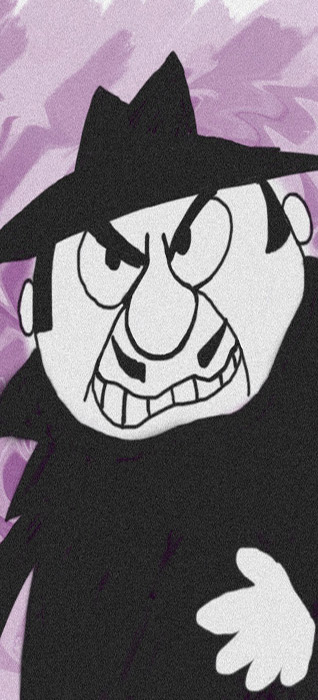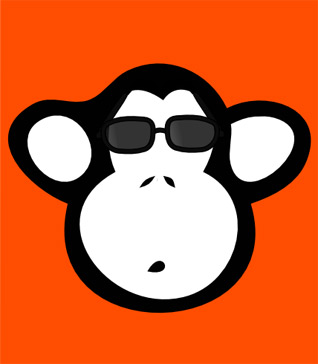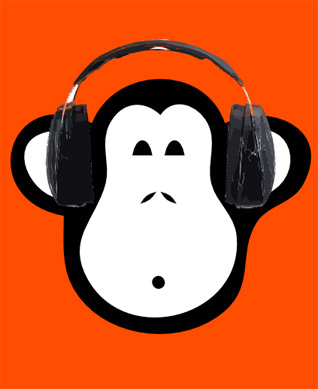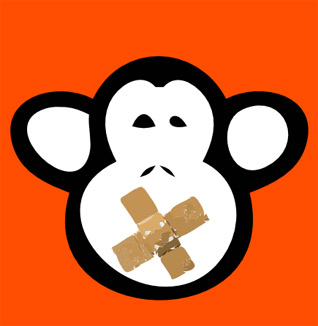Daily Fix
Truth Bandits
Part II
T. SHER SINGH
Continued from yesterday ...
It was in 1984, if I my memory serves me right.
I can pin-point the time fairly accurately, in that I remember that the goings-on in India were still raw in our hearts and minds. I had also recently completed my law ‘articles’ and was in the midst of my bar admission exams.
I had a phone message via the law-firm where I had articled. A “Walter Unna” wanted me to call him.
I got him at the Holiday Inn where he was staying. He was an American reporter with the Washington Post, he said, in town for a couple of days, and would like to meet me.
Why, I asked. Well, he said, he was working on a story on how the Indian government’s attack on the Golden Temple in Amritsar in June that year had impacted on Sikhs in the diaspora, and my name had been recommended by a number of people, that he should speak to me.
But why me, I asked.
Well, he said, he knew that I was soon going to be the first Sikh to be a practising lawyer in Canada -- certainly, the first Sardar. And he was curious about my thoughts and reactions.
A lot of water has gone under the bridge since then, my pre-law days. I had not had taste of public life much until then. I was still very much an introvert then, still without the veneer of the extrovert which I acquired thereafter through life as litigation counsel and in the public eye.
I had had only very limited exposure with the media … I still hadn’t learnt the ropes I knew I needed to; I had had a few encounters with the media and already knew it was a mine-field. But hadn’t quite figured out my way through it yet.
So, my immediate response to Unna’s request was a firm ‘no’.
Why, he asked.
Because I have nothing to say on the subject; I am not a player, not a community leader, not a politician, I don’t belong to any group, I don’t represent anybody, I don’t know how I can be of any help to you.
Ah, he said, but that’s why I need to talk to you. I want to know from you, as an average Sikh-Canadian, how you have emotionally reacted to what’s been happening in India.
But it’s half-baked, I protested, my thoughts on the subject. I am not sure I’m ready to share them.
He pushed me until I agreed, albeit hesitatingly, to meet him for coffee. “We’ll take it from there.“
I met him in the café at the Holiday Inn tucked behind the Toronto City Hall in downtown.
He told me he was traveling around the continent, meeting with Sikh leaders to fathom the impact 1984 had had on them, and their thoughts on the subject. I asked him who he had met or was planning to meet; he rattled off a list of names. I recognized them all, and it alarmed me all the more.
“These are all community leaders or doyens in their fields. I am neither. Moreover, I don’t share the views of any of them, and therefore would hate to be quoted in an article or series of stories in their company. I do not want to be coloured by sheer association, particularly when I have no interest in airing my views ... or supporting theirs.”
Unna looked at me and shrugged his shoulders, but didn’t say a word.
I thought I had resolved the issue, and prepared to get up and leave.
“And,” I added, “I am a new lawyer just about embarking on a hectic career in litigation. This is not a time I should be dabbling in the politics of a faraway land, especially when I have no interest in it, no knowledge of it. You know, I had never even heard of the name Bhindranwale until June 1, 1984, the day I finished my articles and began to prepare for my bar-ad exams. Three days later, and the whole world turned upside down. Now, all I have is a broken heart …“
“Ah,” Unna interrupted me, “that’s exactly what I want to talk to you about. I want to know how you feel, what you feel … and why? That’s all.”
I struggled with my thoughts and emotions, as I sat in front of him. And then, came to a decision.
“No, I definitely don’t want to be interviewed, period. It’s too early for me to be airing my opinions … simply because I haven’t formulated any yet. That’s it. Sorry. I appreciate your interest, I feel flattered, but I simply can’t do this.”
He was quiet for a while. The meeting was over; so I got up to leave.
He stopped me.
“Let me propose something, then,” he said. “I need help in understanding the Sikh community and I’m told you are a person I should speak to. So, how about if you guide me, and help me understand what is going on in the community, after the upheaval in India. Help me get a feel for what’s happening out here.”
I sat down, mulling over his words.
“But you won’t put me in your story?”
“No, I won’t, if you don’t want me to. I promise.”
“You won’t quote me, you won’t mention me?”
“No, I won’t.”
I nodded. “Fine,” I said, "I don’t mind talking to you and pointing you to people you can talk to, etc, etc. And tell you how much the community is hurt, of how it feels, if that helps …”
“Yes, yes, that’s exactly what you can help me with. It’ll be perfect!”
I agreed to come back later in the evening, when I wasn’t rushed for time, and talk to him at length.
* * * * *
I had a quick sandwich at the law-firm where I was tying up loose ends from my articling days, and then walked a few blocks through the evening traffic, to the Holiday Inn.
We met in his room … there would be less noise, and we could talk freely.
He asked me about my life and my trajectory into Canada and, a decade after drifting in the ‘wilderness’, into law.
And then, slowly but pointedly, we turned to 1984.
I told him about how the news had burst on us, of the initial weeks of lack of information, then misinformation and then propaganda that was doled out to us from India. Of our search for nuggets of correct information and truth by scouring through newspapers and magazines from around the world; of phone calls to India and elsewhere. Always searching, searching, searching …
The constant hunger to find out the why and the what and the how and the where. The sleepless nights, the heavy heart, the dull pain in the pit of the stomach, the exhausted mind …
I got up from my chair and began to pace back and forth across the room as I began to bare my soul and let out all the pain that had accumulated for months.
He asked questions from time to time, and I tried to answer them.
Propped up by cup after cup of coffee, I carried on, beginning to feel good about the whole exercise. It was cathartic for me, and I also felt useful: here was a journalist who was looking for more than a sound-bite. He wants to understand!
And I had this opportunity finally to help rend the veil and help him take a peek through it. Hopefully, he’ll tell our story … finally, someone who has the time and the inclination.
I sat down, drained. We began to wind down.
He had stopped writing, and turned over the flap of his note-book and put it on the bed beside him.
I pulled off my jacket from the back of my chair and began to get ready to leave.
“Tell me one thing, Sher,” said Unna, “will this have a lasting impact on the psyche of the Sikhs in the diaspora?”
I stopped and looked at him, and then out of the french windows at the lights of the city. I stood there for a long time, thinking about what he had asked. It was a good question, and I wanted to know the answer too, if there was one.
“What has it done to the Sikh psyche?” he asked again.
“I don’t know,“ I finally spoke. “And I’m not sure if it helps anyone to know what it has done to me or those like me. It isn’t difficult to imagine what is going through the minds of those like me who are educated, or who are trained in dealing with situations no matter what they are or how difficult they are. It doesn’t help much to know what the sophisticated Sikh is thinking about it. Or even what the ordinary Sikh on the street is thinking about it, anywhere in the world.”
I began to pace, lost in my train of thought, but continued.
“What I would worry about, though, is about a handful of men, lord knows who they are, or where they are, who are far more traumatized by the terrible things that have been done to them, their loved ones, their land, their places of worship, their very being.”
I looked at Unna, and saw that he was taking notes again.
“I worry about the innocent man who was brutalized by the Indian forces, who has seen his loved ones killed before his very eyes: his son, his brother, his father. He has seen his daughter or wife or sister or mother being raped. He has seen the callous way his places of worship have been desecrated, and then razed to the ground.
“And then, and then, he hears the lies and the lies and the lies, and he knows they are lies, and he knows those who are telling them know that they are lies. And he sees that there is no relief, no correction, no repentance, no justice …
“What you have done is given him all the ingredients of rage. What we’ve done is turned him and the likes of him mad.
“It’s those who, under confluence of all those circumstances, who now carry a chip, no, a huge boulder, on their shoulders … it’s those unknown ones, who knows where they are nursing their wounds, it’s those we need to worry about as to what they feel, what they’ll do.”
I collapsed into my chair, overwhelmed by the vision I had painted with my concerns.
Unna too just sat there. He said nothing.
Finally, exhausted, I got up and buttoned my coat.
“It’s them we need to worry about. They are the Bhagat Singhs and the Uddham Singhs of this world … you know who they were, don‘t you?” Unna nodded, but he kept on writing.
“Well, what have we done to the psyche of those who have lost everything and have nothing left to lose.”
And then a thought came to me.
“You know, here’s what my real worry is. If one of those madmen … the madmen who India has now created … if one of them somehow has the opportunity, imagine the havoc he would wreak, only if he could. What, for example, do you think he would do, if by some quirk of fate, he could lay his hands on a bomb, even a nuclear bomb. You think he would, in his madness, hesitate to use it?“
It was a frightening thought, and we were both quiet for a few long seconds.
I then bade goodbye. He told me of how much he had liked my input, of how much insight he had attained and how much he appreciate it.
And, he reiterated, upon my reminder: no story on me, no quote from me, anywhere.
I walked out into the cold, crisp air. Felling a little lighter than I had gone in three hours earlier.
* * * * *
Didn’t hear from Unna again. Ever.
Months went by. I forgot about him.
And then, one day, the phone rang. It was a Sikh friend on the line.
No greeting, no niceties, no small talk. His voice was unusually curt and gruff.
“Have you seen this piece about you?“
“Which piece?“ I asked, “Where?”
His wife, of European descent, had relatives in Germany, and had received a newspaper clipping from the front-page from a German daily. It was about me, he said.
“It quotes me? In a German daily? About what?” I asked, getting irritated by his mysterious air.
“It doesn’t just quote, you. It’s about you!” he said, his voice getting a bit shrill.
“Is it good, is it bad? What does it say?”
“Well, I think you should see it. I don’t want to read it over the phone.”
He had certainly stirred up my interest. “Well, fax it to me. Now, please!“
I waited by the machine, until it began cooing and whistling. A single page of newsprint appeared.
It was an article titled “Cri de Couer” - A Cry From the Heart.
It was an article by W. Unna, circulated by a leading international wire service.
It was about me. A short and tight piece, no more than 600 words or so. Talked about my background, quoted me left and right on 1984. Explained my angst, and my hope that Indian leaders needed to move fast and with integrity if they wanted to correct the situation they had created.
Then, closed with the line - and I go by memory:
“And, he says, if he had an atom bomb, he would drop it on New Delhi.”
CONTINUED TOMORROW … PART III ...
Re-published on June 3, 2016
Conversation about this article
1: Sangat Singh (Kuala Lumpur, Malaysia), October 24, 2012, 10:50 AM.
Atom bomb, real or imagined ... still, the pen remains mightier than the sword and any bomb. And, for the forthcoming Part III: I have no nails left. Remember, I have a weak heart and waiting has health hazards.
2: Morrissey (Toronto, Ontario, Canada), October 24, 2012, 1:11 PM.
Reminds me of Bruce Cockburn's mid-80's song, "If I Had a Rocket Launcher" ... well worth youtubing.
3: Jaspreet (Surrey, British Columbia, Canada), October 26, 2012, 6:20 PM.
I'm not surprised. There are a lot of reporters who have no ethics. They work for a profession which requires them to create sensationalism and make sales go up. About 15 years ago, I read the results of an experiment once where a bunch of reporters were asked if they would reveal that a public figure was gay even if it would mean the person might kill himself. 50% said yes. Some reporters do good, but I really dislike the ones who lie and exaggerate or feel they are the moral arbiters and they need to punish others ... even if they may not have done anything wrong.






